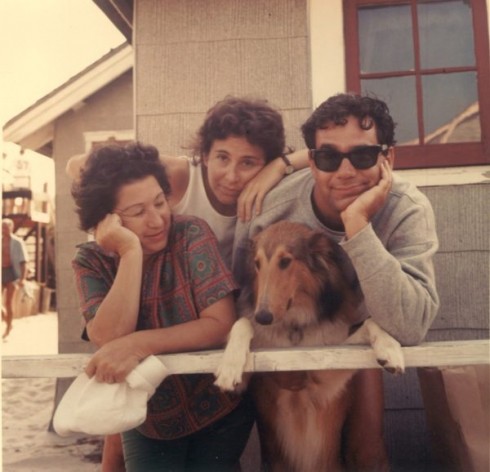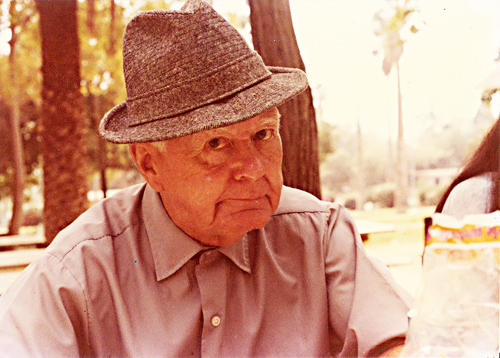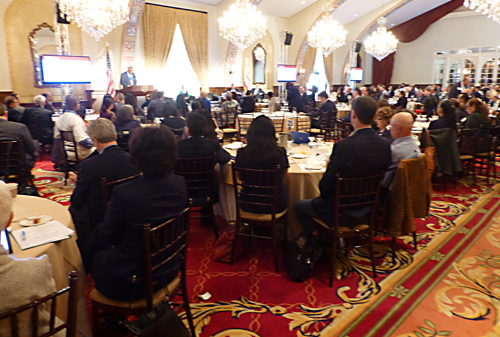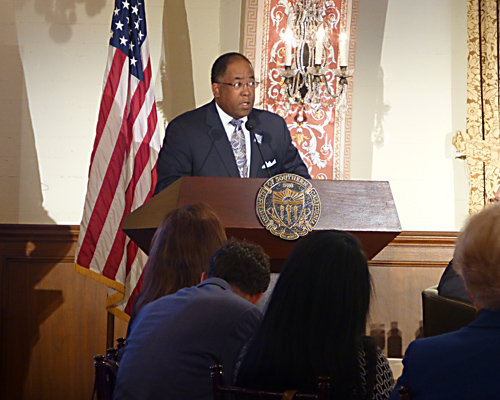Remembering J.F.K. conspiracy theorist Mark Lane and the sex scandal that wrecked his career in government
Mark Lane with Village author Susan Brownmiller, center, and Rose Rubin on Fire Island circa 1963.
This photo appeared in The Villager, where Mary ran an earlier version of this piece.
By MARY REINHOLZ
Some of the death notices picture him as a gadfly. But for me, a writer who got to know him a little in Los Angeles decades ago, Mark Lane played David versus Goliath, tilting up against seemingly impossible odds. The activist attorney and author kept sniping away at government agencies like the CIA up until the time of his death on May 10 in Charlottesville, Va. He was 89.
As his obituaries note, Lane gained international fame challenging a report by the Warren Commission–established in 1964 by Lyndon Baines Johnson– that Lee Harvey Oswald was the lone assassin of his predecessor, President John F. Kennedy, on November 22, 1963 in Dallas, Texas. He made that claim in his best selling 1966 book, “Rush to Judgment,” and again in a documentary by the same name. His 1974 feature film, “Executive Action,” covered similar terrain, starring Burt Lancaster. He wrote it with help from Donald Freed and the formerly blacklisted screenwriter Dalton Trumbo.
Lane became a towering figure in the counter culture of the era, nurturing a cottage industry of conspiracy theorists and amateur detectives. His celebrity came soon after a crushing blow to his political ambitions in New York, an episode that will be explored as we go along. As he once told me during an interview, “The past is prologue,” quoting from Shakespeare’s “The Tempest.” Read more
A PROUD SON PAYS TRIBUTE TO A KIND AND RESPECTED FATHER
By Bob Vickrey
Everyone always knew where they could find my father.
Most days he could be found in the backyard leaning on his garden hoe in a relaxed, contemplative pose. His tranquil demeanor revealed a man who appeared to be at peace with himself and the world.
He maintained the even, steady temperament of someone content with his life.
His innate kindness was palpable – people sensed that about him immediately.
He was known for his patience and never seemed to be in a hurry. For a man who was once the fastest sprinter in East Texas – and had the state track medals to prove it – he moved at his own pace regardless of the situation.
He had a deep and abiding love of nature and a genuine appreciation for the land. Read more
WESTSIDE BISTRO EQUALS CHUCK YEAGER’S FEAT AND BREAKS SOUND BARRIER
By Bob Vickrey
As my friend Jamie and I made our way through the front entrance of the fashionable bistro, the first wave of deafening noise from inside almost knocked us backwards toward the Wilshire Boulevard curb.
I’m quite certain the initial blast had registered a significant reading on the Richter scale. Former Cal Tech seismologist Lucy Jones would surely have a full report on the eleven o’clock news later that evening.
We speculated the trendy cafe in Santa Monica had become the first dining spot in America to have officially broken the sound barrier. And surely history would reflect that the owners of the restaurant had successfully matched legendary test pilot Chuck Yeager’s achievement decades earlier—but had done so without ever leaving the ground. Read more
USC Holds Summit on Homelessness
Leslie Evans
Several hundred people gathered at USC’s Town and Gown building April 17 for a summit conference on homelessness. They heard more than twenty speakers in four panels from Los Angeles city and county government and a wide range of leaders of homeless agencies and programs, as well as university faculty members. The presentations ranged from academic studies to workers in the trenches who deal with the homeless and their problems on a daily basis. Following are highlights of the conference.
The summit opened with County Supervisor for the Second District, Mark Ridley-Thomas. He said his agency has seen homelessness as its top priority for several years, and that the county has set aside $100 million in new one-time funding over the next two years. “But one-time funding won’t do it. We have to find a regular annual funding stream if we are to succeed.”
USC President Max Nikias. “There is a moral imperative to help those in our community who are struggling just to survive.” The homeless, he added, are not of one type. They include the elderly, the disabled, veterans, mentally ill, youth emerging from foster care, the poor who have lost their jobs, the formerly incarcerated, and young families who have lost their homes. “Homelessness,” he insisted, “is the defining issue in the county of Los Angeles. Instead of averting our eyes from the crisis we must see it. If we don’t act now the problem will worsen. We will have more to contend with than we can possibly handle.” Read more








